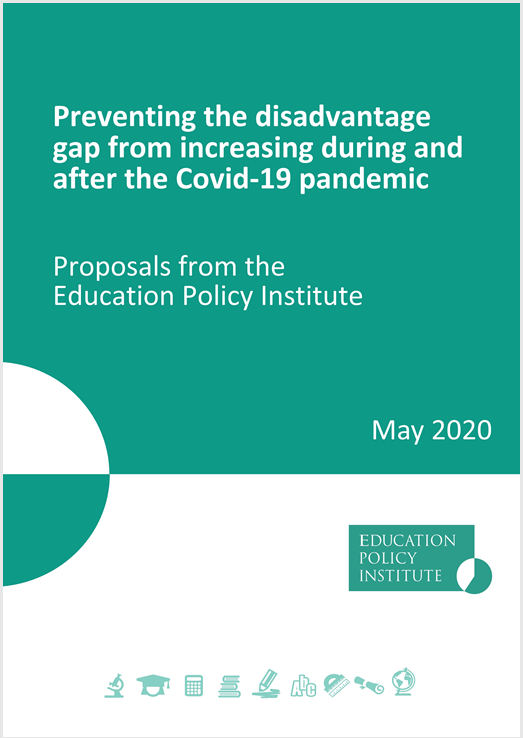The Education Policy Institute has published a series of policy recommendations for government, designed to prevent a significant widening of the disadvantage gap between poor children and the rest of the pupil population following the pandemic.
Prior to the outbreak of Covid-19, EPI research found that disadvantaged children are already on average one and a half years of learning behind other pupils by the time they take their GCSEs.
Ahead of the expected announcement on the reopening schools, the new paper calls on the government to set out a school “Catch Up Plan” to provide targeted pupil support.
You can read the paper in full here.
The new proposals for government to support disadvantaged pupils include:
- Doubling Pupil Premium funding for one year, from September 2020, for pupils entering Year 1, Year 7 and Year 11. Costing around £500m, this would provide schools with more resources for catch up classes and small group tuition for those disadvantaged pupils making crucial transitions into primary and secondary education, and those taking their GCSEs.
- EPI also recommends doubling the disadvantage funding made available for students set to enter Year 13, who will be taking their A Levels and other Level 2 qualifications. This would cost around £242m.
- Doubling, for one year only, the Early Years Pupil Premium (costing £31m), the Looked After Premium for children in care (£263m), and permanently extending the Looked After Premium to those on the Child Protection Register (245m).
- Allowing schools to make their own, evidence-based judgements about how best to use this extra funding for disadvantaged pupils, including drawing on advice from the Education Endowment Foundation. Schools would be able to increase teaching resources, including by using supply teachers and tuition available from both private and charitable providers.
- Establishing a one-year national “Teacher Volunteer Scheme”, targeted at retired and inactive teachers, who may want to give their time to help schools to make good the learning losses experienced by disadvantaged and vulnerable children.
- Suspending Ofsted inspections of schools until at least January 2021, to allow schools to focus this year on the challenges of re-starting education while maintaining social distancing.
- Issuing new guidance to schools to prevent a significant increase in exclusions and “off-rolling” of pupils, as schools return. The return of pupils during this period of disruption may bring fresh behavioural challenges. Exclusions and off rolling particularly impact disadvantaged and vulnerable learners.
- Reviewing the current plans for national examinations in 2020 and 2021 to avoid the risk of adverse impacts on disadvantaged and vulnerable groups, including those with special educational needs and from certain ethnic backgrounds.
- Supporting further education (FE) colleges and 16-19 providers with an “Education for Recovery” package including funding for lost learning time, maintenance grants for post-18 courses, and the extension of vocational courses and for adult re-skilling.
- Funding Alternative Provision (AP) – education which sits outside of mainstream settings, usually reserved for pupils with behavioural or health issues – for post-16 students. Currently AP at this age is not funded by the government. The impact of having no specialist provision after age 16 will be particularly harmful to those children who miss on out on GCSE grades this year.
- Ensuring access to home tutoring and therapies for some children with special educational needs and disabilities (SEND). While some pupils with SEND are currently in attendance at school, for others home support is needed because of medical conditions or because of the inability to safely socially distance in the school environment.
- The expansion of support for vital out of school services such early intervention, mental health, children’s social services and youth services.
You can read more on these proposals in the full policy paper.


